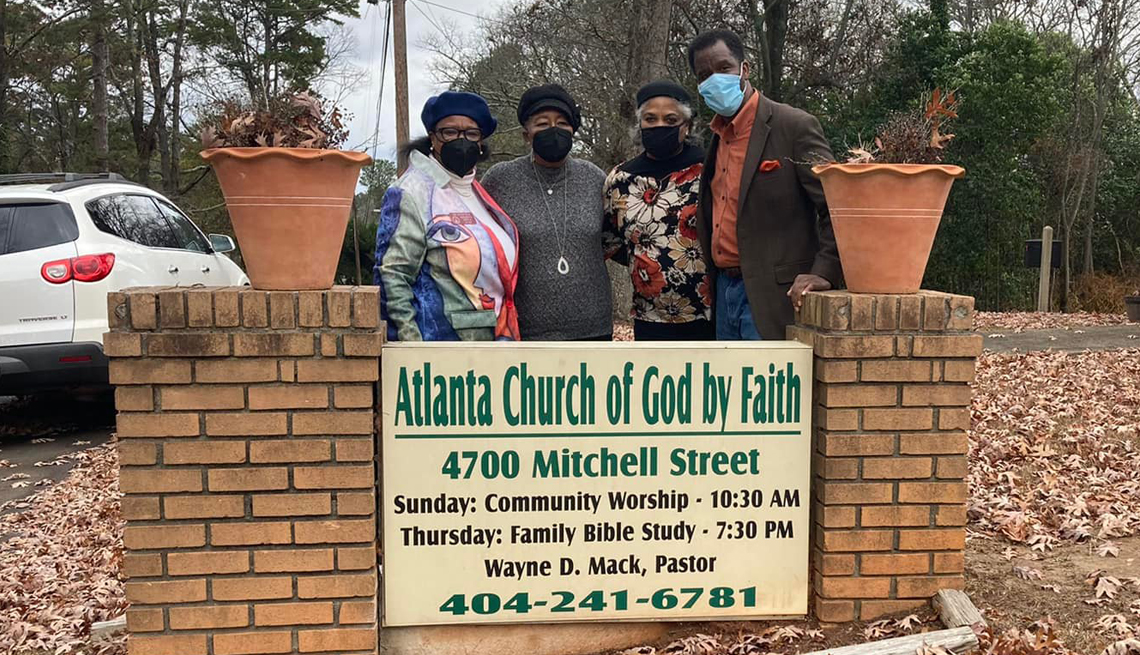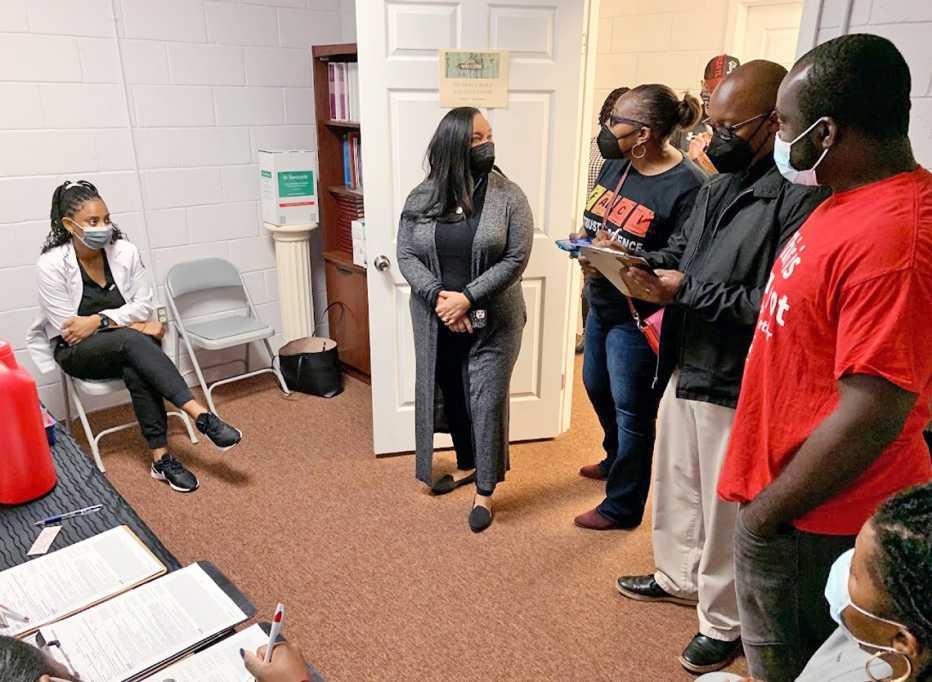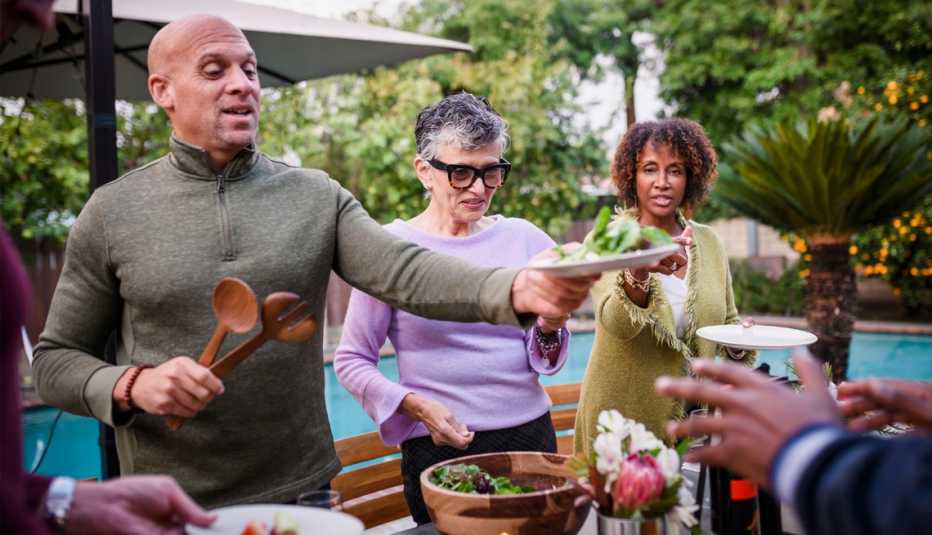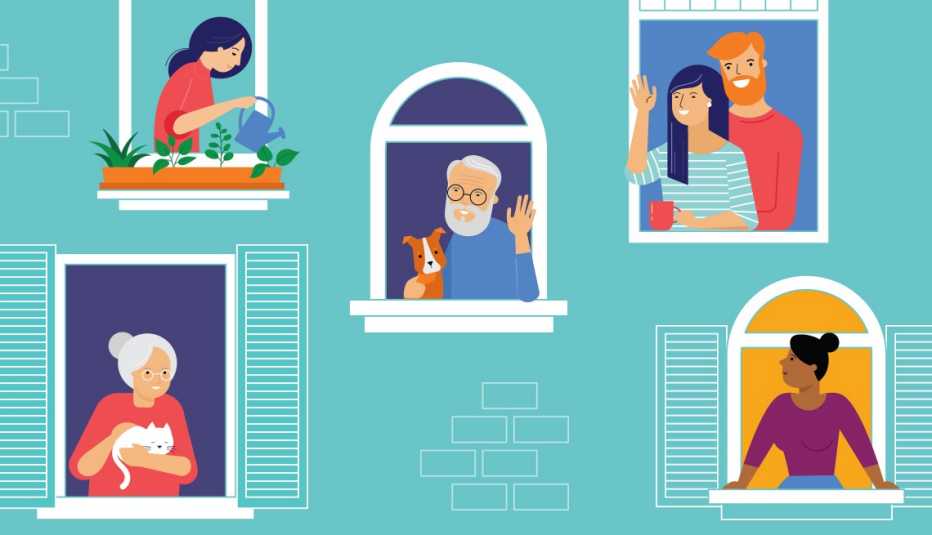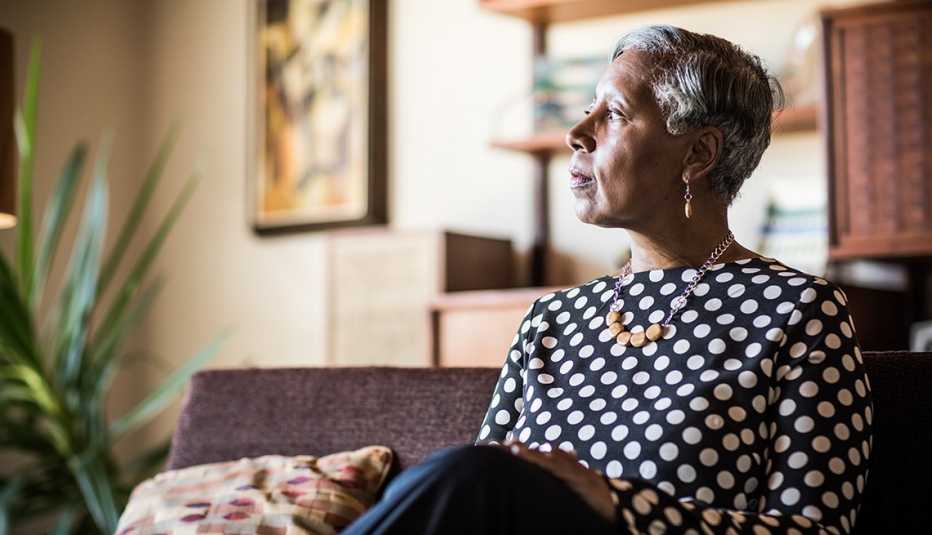Staying Fit
Way back at the beginning of the pandemic when the leadership of Grace Place Church of God by Faith decided to fight COVID-19, no one really knew how long that battle might take or what it would look like for the suburban Atlanta church.
At the time, Georgia was reporting fewer than 100 cases of the virus. Two years, more than 1.8 million cases in the state and 27,000-plus deaths later, Grace Place hasn’t lost a single member to COVID-19.


AARP Membership— $12 for your first year when you sign up for Automatic Renewal
Get instant access to members-only products and hundreds of discounts, a free second membership, and a subscription to AARP the Magazine.
Even though the church is located in Clayton County, where fewer than 44 percent of residents are fully vaccinated, more than three-quarters of Grace Place’s parishioners are fully vaccinated. Recently, the church hosted a pop-up vaccine clinic for the surrounding community to widen its reach. But it hasn’t always been easy to navigate the pandemic waters and to convey accurate information, says Pastor Wayne Mack, 61.
“As a congregation, we wanted to be a hub or catalyst in the community for connecting people with education and/or an opportunity to be vaccinated,” Mack says.
Defying the COVID-19 odds
Grace Place, a small Black congregation of about 100 members, has defied the odds. Nationally, African Americans account for nearly 14 percent of all COVID-19 deaths.
To take on the virus, the church turned to its members and their expertise. LaBrentha Lonon, 52, a registered nurse in neuroscience at Emory University Hospital, works with stroke patients and in 2020 did COVID testing at a drive-through event with Emory colleagues. At Grace Place, Lonon leads the congregation’s medical team, which focuses on health and wellness.
Another member, Benita Harris-McBride, 57, works for the Centers for Disease Control and Prevention (CDC) and has a master’s degree in public health.

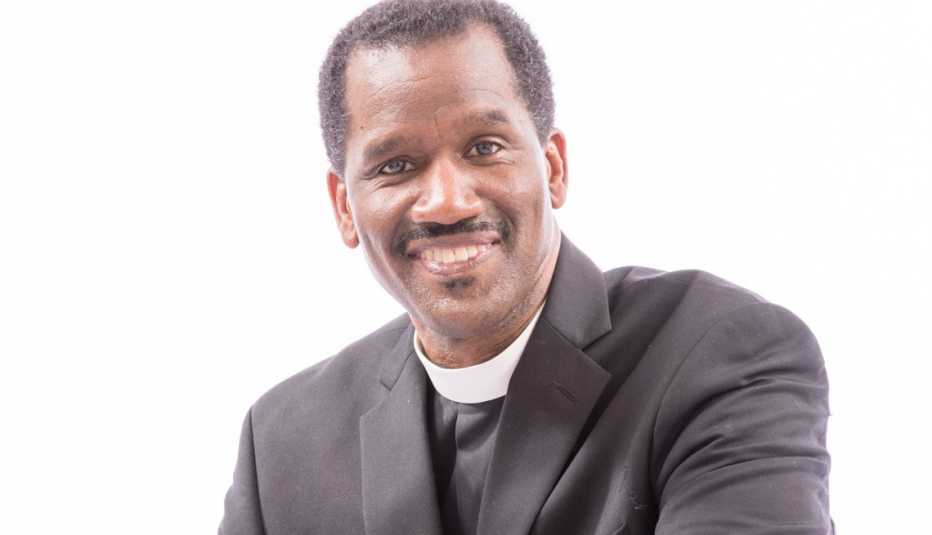
Heroine.
Lonon and Harris-McBride kept the congregation informed from a medical perspective while Mack hammered home this message: “Respect the virus.” He used Zoom, Facebook Live, the church’s mobile app and email blasts to reinforce the idea that the threat the virus poses should be taken seriously.
Before COVID-19 arrived in the United States, Mack saw a documentary about the 1918 Spanish flu and its impact. “I watched it and watched it again and again,” says Mack, who remembers thinking, Something is coming our way, and we need to be ready for it."



























































